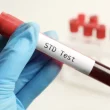Science education has always been a crucial component of our academic system, and for good reason. It not only helps students understand the world around them but also nurtures their critical thinking and problem-solving skills. These skills are vital to success in any field, be it academics or professional life. In this blog post, we will explore how science education can help students develop these essential skills, with real-life case studies showcasing its effectiveness. So buckle up and get ready to discover how science education can transform the way we think!
Science Education in the Classroom
Science education in the classroom is an essential part of a student’s academic journey. It involves much more than mere recitation of facts and figures from textbooks. Science education aims to foster scientific inquiry, curiosity, and critical thinking skills while also promoting problem-solving abilities.
In today’s classrooms, science education has become increasingly hands-on and interactive. Students are encouraged to conduct experiments for themselves, ask questions and design their own investigations. This approach not only makes learning enjoyable but also helps students take ownership of their education.
Science classes have evolved significantly over the years with the introduction of modern technology such as virtual labs that give students access to experiments they wouldn’t otherwise be able to perform in a physical setting. These tools allow students to investigate real-world problems and explore various solutions while being creative at the same time.
Science education in the classroom provides invaluable opportunities for students to develop intellectual skills such as observation, analysis, synthesis and evaluation; all vital for success both academically and professionally later on in life.
The Importance of Critical Thinking and Problem-Solving Skills
Critical thinking and problem-solving skills are crucial in today’s world. These skills enable us to approach complex situations with clarity, reason, and logic. They allow us to analyze problems from multiple perspectives, identify the most effective solutions and make informed decisions.
In a rapidly changing world where technology is advancing at an unprecedented pace, it is important for students to develop critical thinking skills that will help them navigate through the challenges of the 21st century. Students who possess these skills can easily adapt to new situations and think creatively about how they can use their knowledge in real-world scenarios.
Moreover, critical thinking skills are essential not only for academic success but also for personal growth. By learning how to evaluate different sources of information critically, students can become more discerning consumers of media content and better able to distinguish facts from opinions.
Problem-solving skill development helps students learn how to face challenges head-on by identifying obstacles and brainstorming ways around them. In turn, this fosters self-confidence as well as resilience when confronting difficulties in life.
All in all, teaching critical thinking and problem-solving abilities should be given high priority status within science education programs since it provides young learners with essential life-long tools that will enable them successfully solve any challenge that comes their way both academically or personally.
How Science Education Nurtures These Skills
Science education is not just about memorizing facts and figures. It’s about developing critical thinking and problem-solving skills that are essential for success in any career or field of study. By engaging with scientific concepts and theories, students learn to ask questions, analyze information, and form conclusions based on evidence.
One way science education nurtures these skills is by encouraging experimentation and exploration. Students are given opportunities to test hypotheses, make observations, and draw conclusions through hands-on activities like lab experiments, field trips, or simulations.
Science education also teaches students how to think critically when evaluating information from various sources. In today’s world of fake news and misinformation campaigns, the ability to discern fact from fiction is more important than ever before.
Moreover, science education provides a foundation for problem-solving through its emphasis on the scientific method – a systematic approach used by scientists to investigate phenomena. This process involves identifying a problem or question; forming a hypothesis; testing the hypothesis through experiments; analyzing data; drawing conclusions; and communicating results.
In addition to these core elements of science education that nurture critical thinking and problem-solving skills in students at all levels — elementary schoolers learning basic principles of physics while building structures out of marshmallows or high school seniors conducting research projects have had some huge breakthroughs — there are countless other ways teachers can integrate STEM into their classrooms beyond traditional lessons such as hands-on labs or classroom visits from local scientists who will share real-life experiences with them!
Case Studies
Case Studies
To further emphasize the importance of science education in nurturing critical thinking and problem-solving skills, let’s take a look at some case studies.
One study conducted by researchers from the University of California found that students who were taught using an inquiry-based approach to science education showed significant improvements in their critical thinking abilities compared to those who received traditional instruction. This highlights how hands-on learning experiences can lead to better retention and application of knowledge.
Another case study involved a group of high school students who participated in a project-based learning program focused on real-world environmental issues. Through this program, students not only gained scientific knowledge, but also developed skills such as collaboration, communication, and decision-making – all essential for success beyond academia.
Furthermore, research has shown that integrating technology into science education can also be beneficial for developing critical thinking skills. For instance, online simulations and virtual labs provide opportunities for experimentation without limitations while allowing learners to analyze data independently.
These case studies demonstrate how science education provides practical opportunities for learners to develop key life-long skills beyond just acquiring scientific knowledge.
Conclusion
Science education is an essential component of any curriculum, as it fosters critical thinking and problem-solving skills that are necessary for success in today’s world. The ability to analyze information, think critically, and identify solutions to complex problems is crucial both within the classroom and beyond.
Science education nurtures these skills by providing students with hands-on experiences that encourage them to investigate scientific concepts, experiment with ideas, and develop their own hypotheses. Through this process of inquiry-based learning, students are better equipped to understand how science works in the real world.
Case studies from various schools across the country demonstrate how science education can enhance critical thinking and problem-solving skills. Students who participate in STEM programs not only show higher test scores but also exhibit increased confidence when tackling new challenges.
It is clear that science education plays a vital role in nurturing critical thinking and problem-solving skills among students. By integrating more interactive approaches such as labs into traditional classroom settings, educators can create a learning environment that encourages independent thought while fostering collaboration among peers. With continued emphasis on STEM subjects at all levels of education, we can equip future generations with the tools they need for success both academically and professionally.











